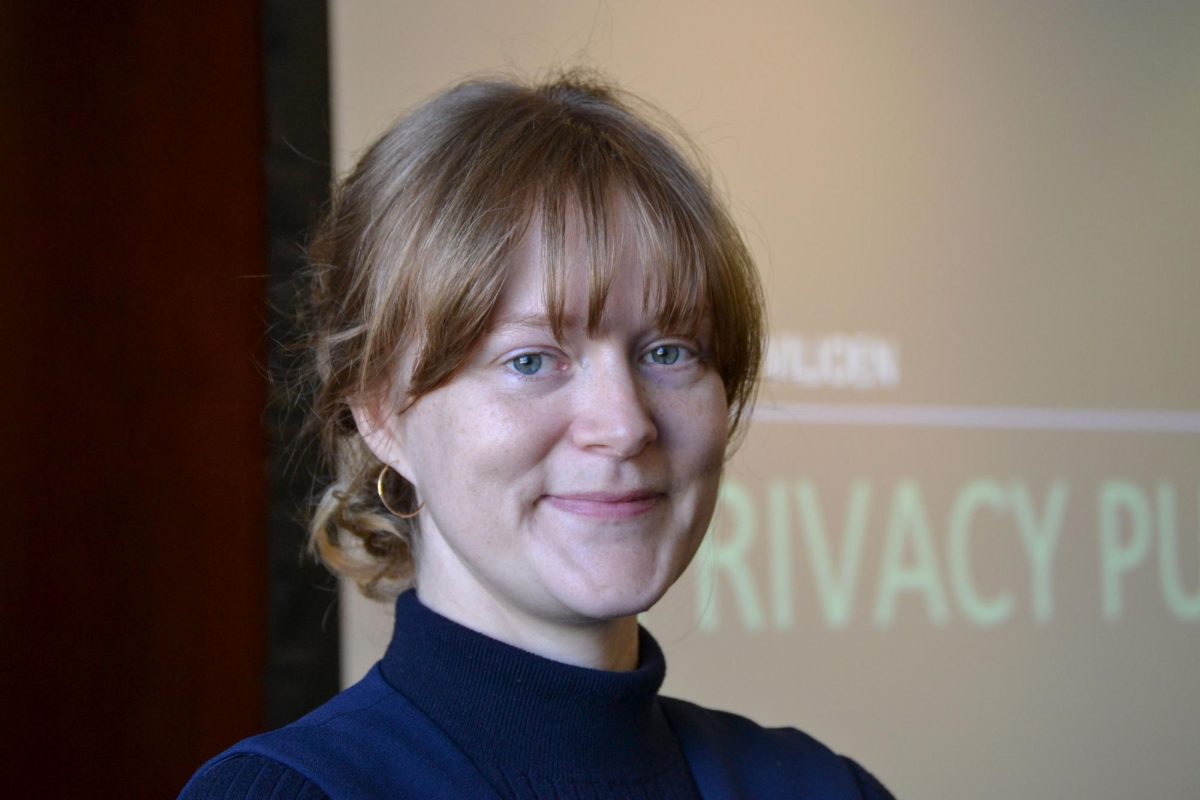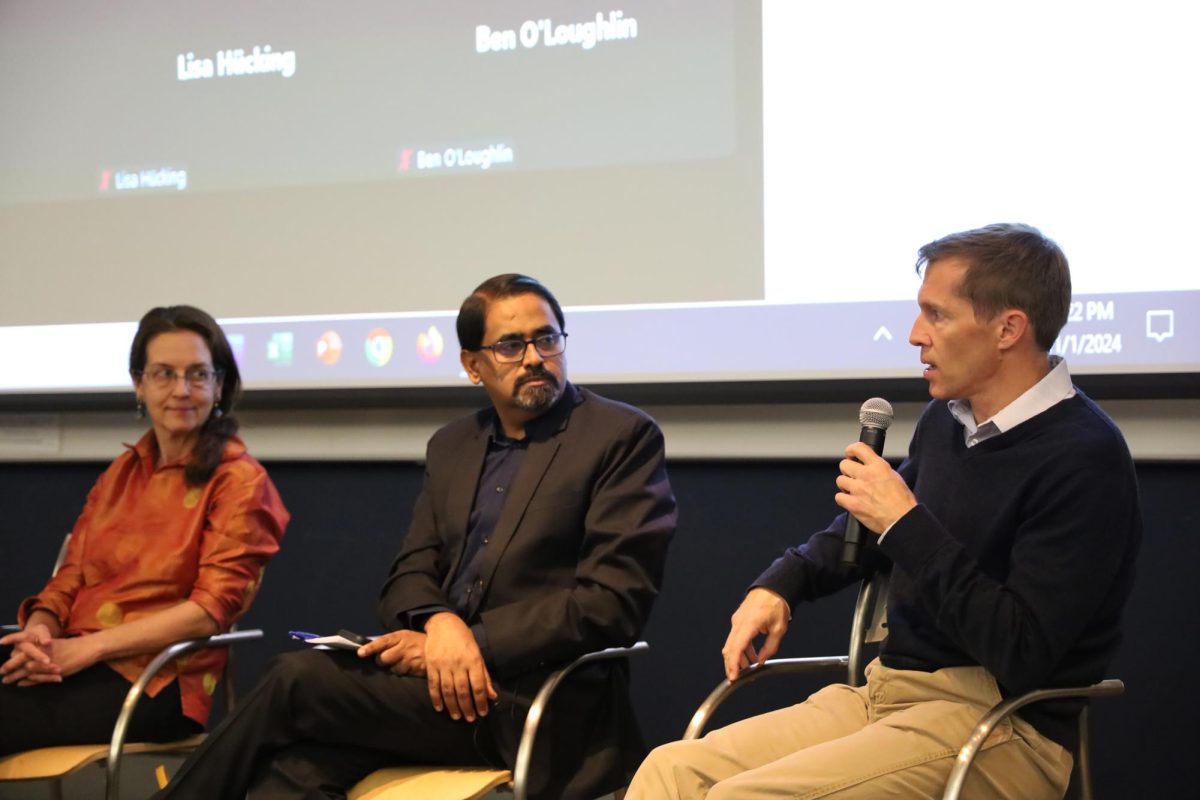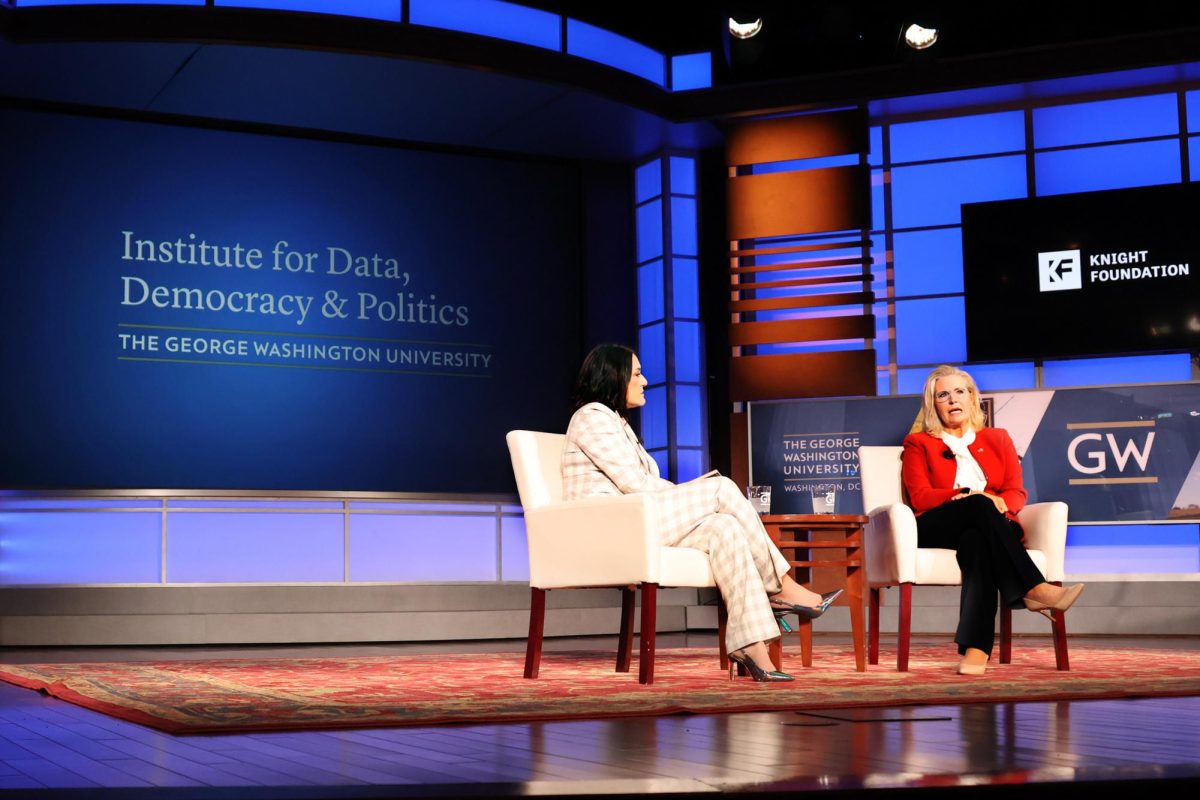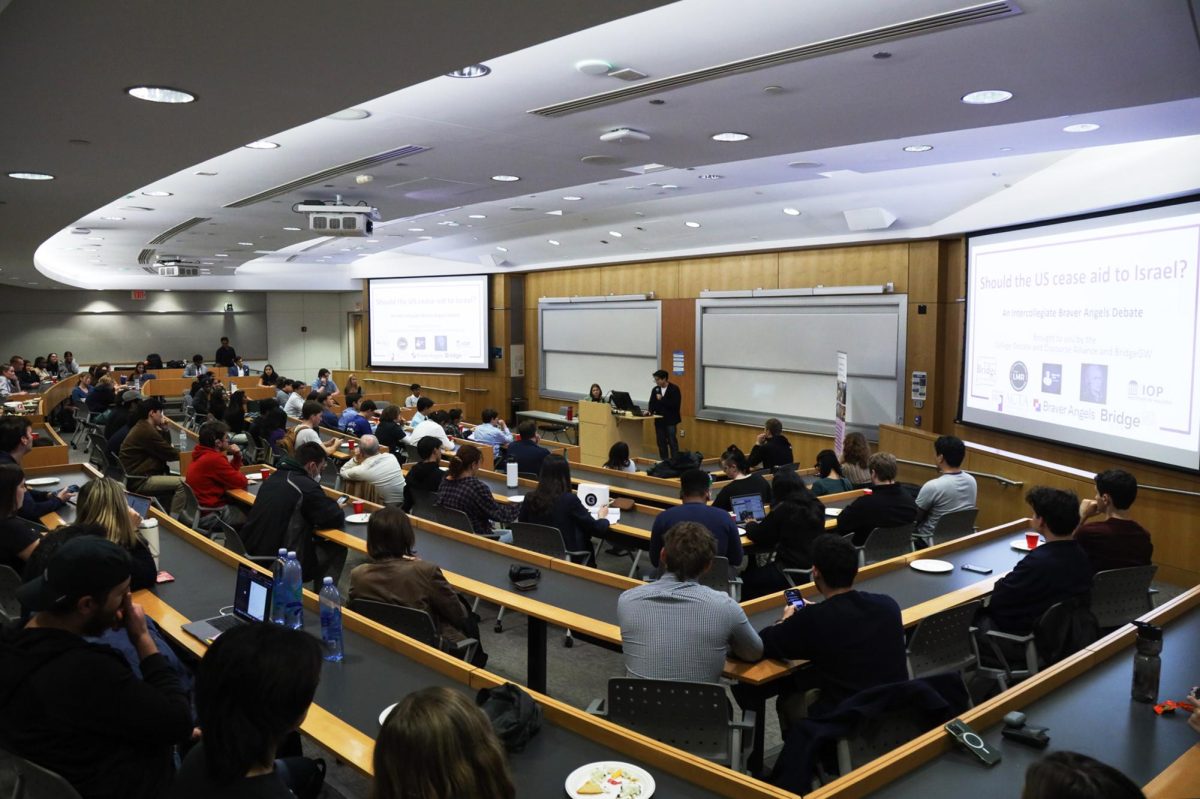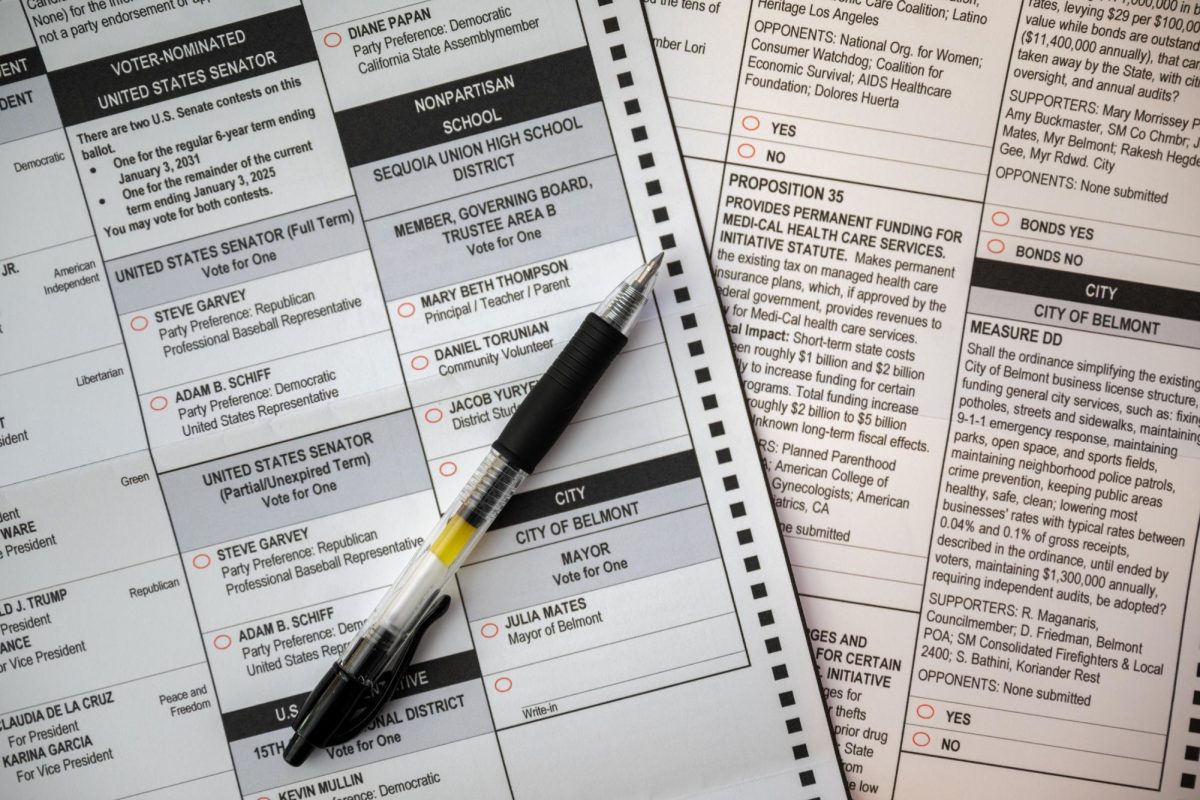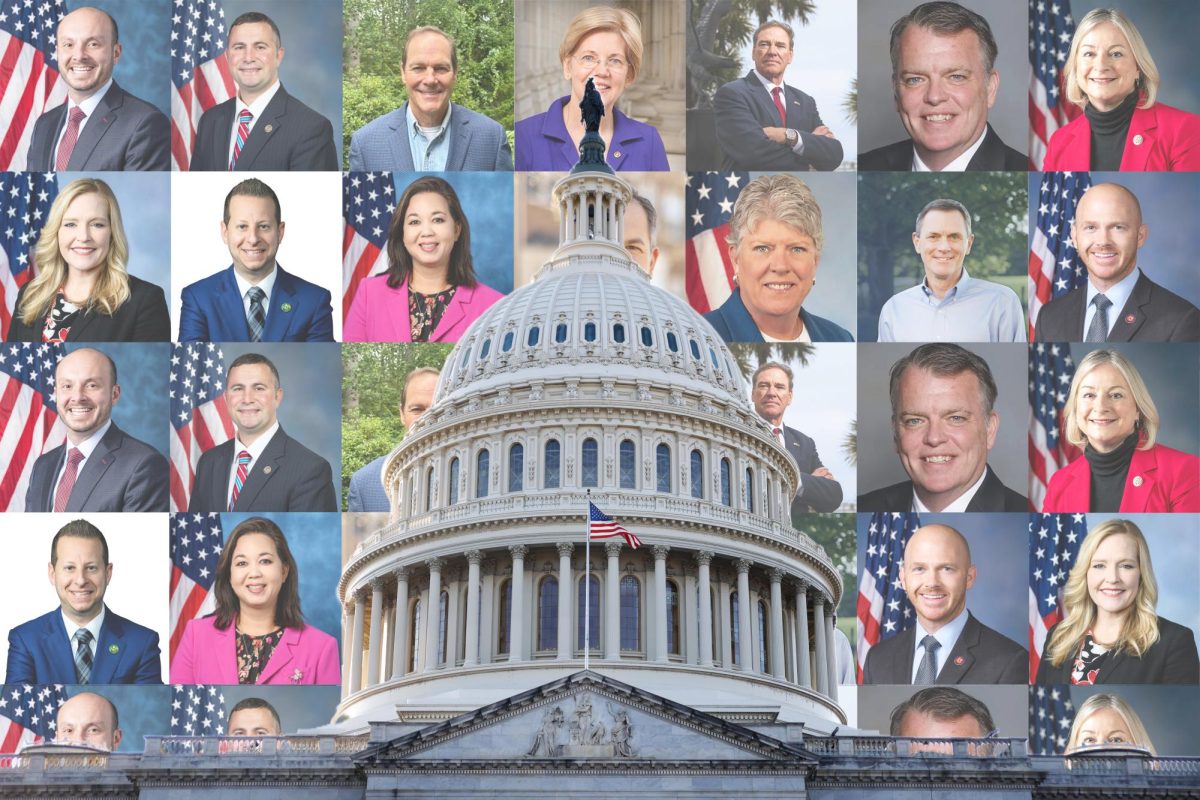A legal expert discussed the state of privacy law amid increasing data collection nationwide at the GW Law Student Conference Center on Monday.
University of Michigan Law School professor Salomé Viljoen said some “puzzles” still exist within privacy law knowledge about how to best uphold core privacy interests. The talk, titled “Privacy Puzzles,” was the first in a speaker series hosted by the recently launched Center for Law and Technology.
Viljoen said her talk aimed to address the growth of privacy law to encompass more topics like reproductive and data privacy, as well as the impact of the field’s expansion.
“It can make the case that privacy matters for a wider set of goals and reasons,” Viljoen said.
Vijloen said crisis pregnancy centers, or CPCs, advertise themselves as reproductive healthcare centers but instead dissuade pregnant people from seeking abortions. She posed a hypothetical which questioned whether a law requiring CPCs to disclose their religious affiliation and major funding sources would violate privacy principles or whether exposing CPCs’ data-gathering practices would make the law useful.
She said the hypothetical is an example of how different privacy interests can compete within a single law.
Viljoen said being pregnant has made her comfortable explaining how privacy violations impact access to reproductive resources. She said current privacy law concerns range from third parties accessing confidential health information by circumventing HIPAA laws to government agencies accessing health data, like period trackers, through third-party vendors.
“Patterned privacy violation is part of what it means to live in a society where gender and sex mark forms durable of inequality,” Viljoen said. “In the wake of the Dobbs decision you see widespread concern, not just about how are we going to continue to provide reproductive health services, but also how are we going to protect fertility privacy?”
Viljoen said there are other factors that privacy law considers including social identity, economic inequality, and political and legal effects of state surveillance. She said since these factors are all considered under the current “family” of privacy concepts, conflict between them is likely.
“Like all families there has been some amount of internal tension among these concepts,” Viljoen said. “That idea is not new and it’s to be expected.”
Viljoen said corporate information and data gathering by large corporations is an area where there is less tension between different privacy principles and more tension between privacy and economic interests. Viljoen displayed two consecutive graphics, the first demonstrating the rapid increase of raw data collection over the past several years and the second depicting wealthy, powerful companies as a main driver of this trend.
“The economic imperatives, the political goals — that absolutely has an effect on eroding privacy,” Viljoen said.
Viljoen said she is hopeful for the new, broader approach to issues of privacy law. She said support for robust privacy protections are supported by a boost in public value of privacy in the wake of massive data collection scandals like Cambridge Analytica’s collection of over 50 million Facebook profiles of U.S. voters while working with Donald Trump’s presidential campaign and the Brexit campaign in 2018.
Viljoen said she looks forward to becoming a mother and expanding upon her earlier privacy law work.
“Privacy as a big tent concept is very helpful,” Viljoen said.
The next event of the series will take place February 12.


